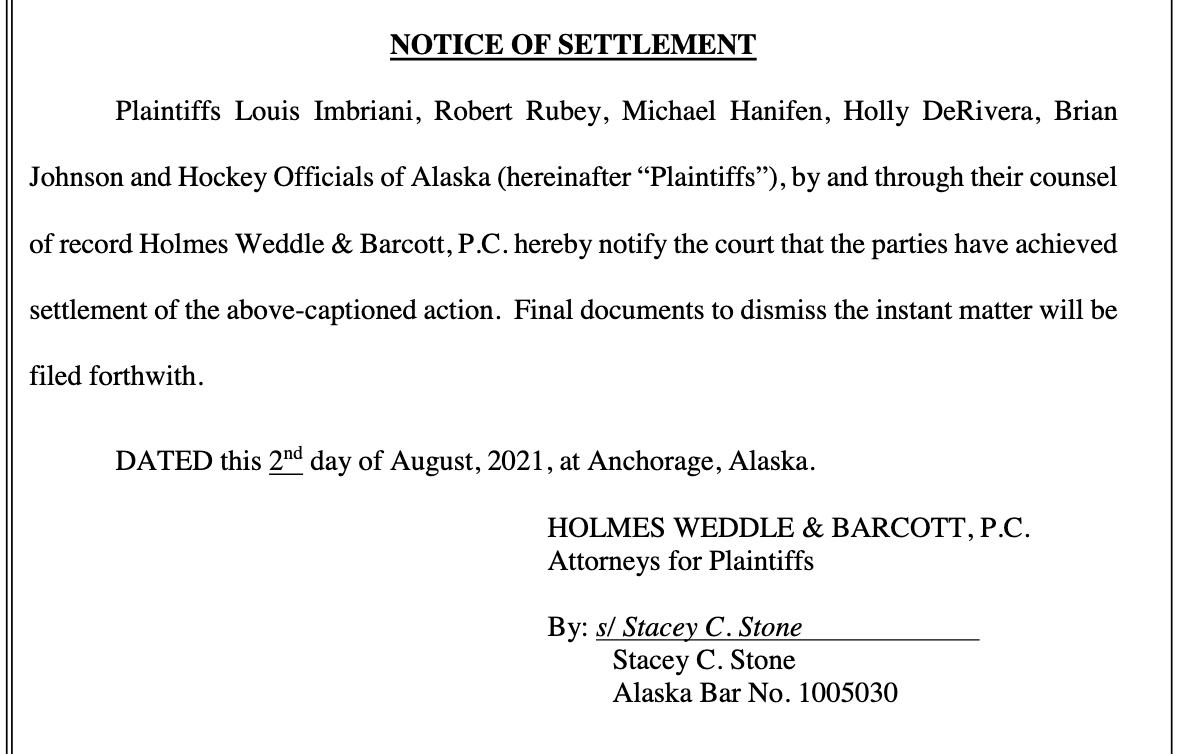BREAKING: The settlement agreement in Imbriani v. Quinn-Davidson indicates that the Bronson Administration is limiting the Anchorage Health Department’s COVID-19 vaccine outreach in response to privacy concerns. THREAD:
https://twitter.com/AK_cases_bot/status/1438218201293209600
Background: The Municipality of Anchorage settled a lawsuit challenging the COVID-19 emergency orders in the weeks after Mayor Bronson took over. 

The agreement does more than resolve the claims for declaratory relief, it's also a "Mutual Release of Claims" which is a really weird thing for a lawsuit focused on constitutional claims challenging the COVID-19 emergency orders. 

Most interestingly, the settlement agreement advances the reporting by @adn_zaz that Gov. Dunleavy has ordered a criminal investigation into a COVID-19 data breach by the Municipality and its contractors.
adn.com/alaska-news/20…
adn.com/alaska-news/20…
Under the settlement agreement, the Muni agreed to "cease and desist utilizing or disseminating the names, contact information, and/or other personal info that was received from the State of Alaska in the COVID-19 vaccination disclosures." 

That's a really WEIRD term to include in the settlement agreement because Imbriani and the plaintiffs barely mentioned the data breach in their complaint. Just 1 paragraph and no specific claim for relief, and definitely no claim for money damages. 

It's not clear if the Imbriani plaintiffs actually had their data shared outside the State-Muni agreement or not. Which is why the "Mutual Release of Claims" language is so bizarre. It seems to have been used as a vehicle for the Bronson Admin to limit the Health Department.
The settlement agreement also sheds light on what the Muni was doing in February-April 2021 to get Anchorage residents vaccinated. On February 5, just after this tweet from Acting Mayor Quinn-Davidson, the Muni amended the contract with AM Trace to include vaccine outreach. 

The amended contract directed AM Trace to "help with community outreach focused on increasing vaccine acceptance, reducing hesitancy concerns, continued education, and vaccine appointment scheduling assistance to prevent transmission of COVID-19." 

It looks like the Anchorage Health Department also shared information, acquired from the State, about individuals in Anchorage who hadn't gotten the vaccine yet. AM Trace made calls specifically to those individuals with information received from the Health Department. 

That may have been a criminal violation if the disclosure was outside the State-Anchorage Confidentiality Agreement governing COVID-19 data. Gov. Dunleavy has ordered the Department of Law to investigate, and according to sources, a criminal investigation is ongoing. 

Circling back, the settlement agreement makes it clear that the Health Department will no longer use personal information from the State COVID-19 database. "Utilizing" - not just "sharing" - is key. The Health Dept.'s hands are tied, even as vaccine outreach is waning. #aklaw 

• • •
Missing some Tweet in this thread? You can try to
force a refresh






















